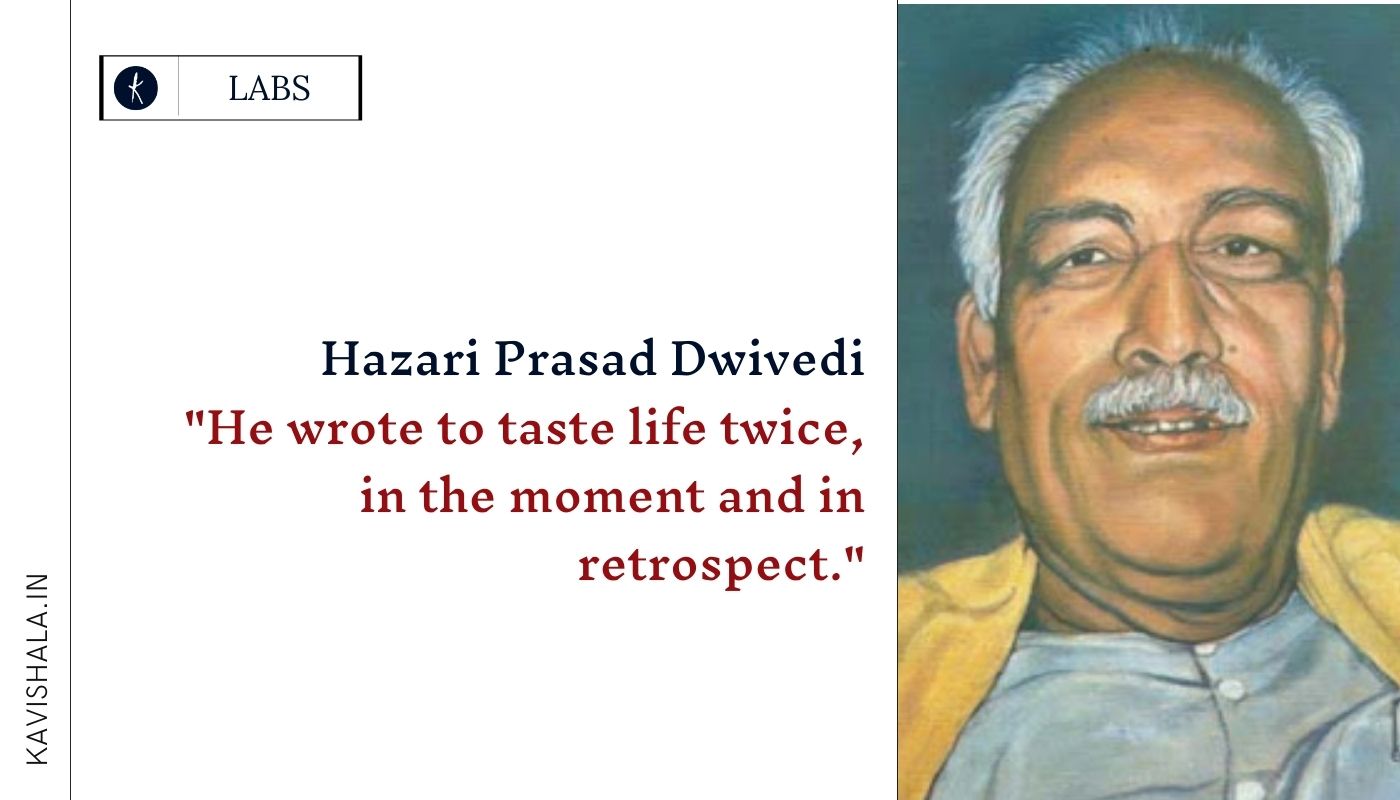
Hazari Prasad Dwivedi :"He wrote to taste life twice, in the moment and in retrospect."!
"He wrote to taste life twice, in the moment and in retrospect."
Kavishala mourns for Hazari Prasad Dwivedi who lived among us from 19th Aug 1907 till 19th May 1979.
He was a popular Hindi novelist, critic, famous literary historian, legendary essayist, researcher, excellent writer, scholar, of the Adhunik Kal as well as the master in many other languages like Sanskrit, Gujarati, Pali, Bengali, Punjabi, Apabhramsa, and Prakrit. Born in a traditional family of village Chhapra in the Ballia district of Uttar Pradesh his early education was completed there only.
Having written a variety of novels, numerous essays on many historical pieces of research on the medieval spiritual movements of India including the Kabir, Rabindranath Tagore, and Natha Sampradaya.
Dwivedi Ji used to play a major role in the evolution of the Sahitya sastra and is considered a famous reviewer on the textual custom of Indian writings. He was intended as the immense bridge maker between the past and the present. He was greatly influenced by Namvar Singh, Shivprasad Singh, and Vishwanath Tripathi.
Expertise in traditional knowledge of Sanskrit, Pali, and Prakrit, and modern Indian languages, Dwivedi was destined to be the great bridge maker between the past and the present. As a student of Sanskrit, steeped in the Sastras, he gave a new evaluation to Sahitya-sastra and he can rightly be considered as a great commentator on the textual tradition of the Indian literature.
Most profoundly he was awarded the Padma Bhushan in 1957 for his contribution to Hindi Literature and the 1973 Sahitya Akademi Award for his collection of essays, 'Alok Parva'.
As Dwivedi had his early education until middle examination at his village school. After completing his intermediate, he also studied Jyotisha(astrology) and Sanskrit at a traditional school to qualify for an 'AchArya' degree in astrology and a 'Shastri' degree in Sanskrit.
Later on, he was offered to join Visva Bharati in 1930. There he taught Sanskrit and Hindi and was engaged in research and creative writing. He stayed on in Santiniketan for two decades. He helped to found the Hindi Bhavana and was its head for many years.
He came to imbibe the subtleties of Bengali, the
